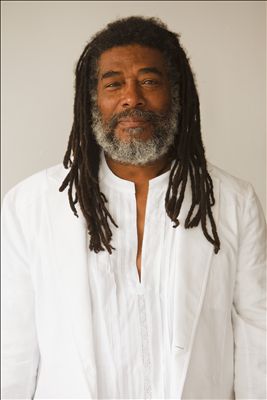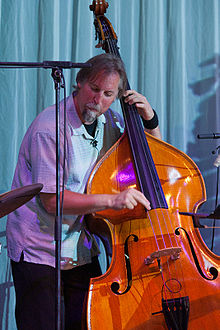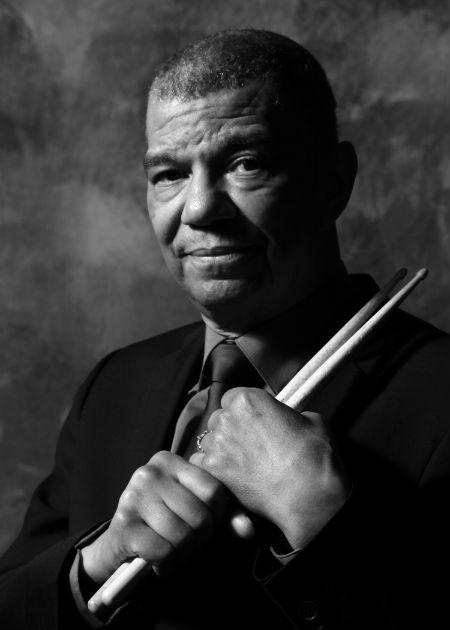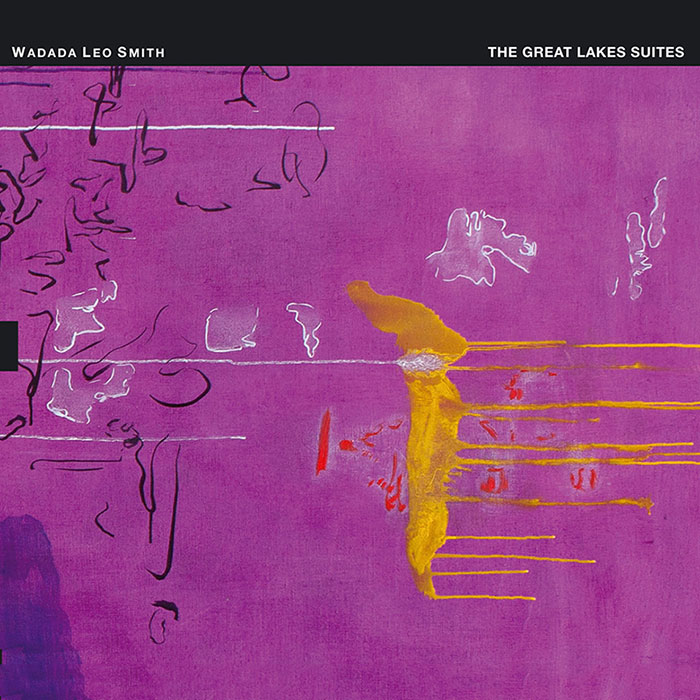Share This
Album at a Glance
Tags
Related Posts
Wadada Leo Smith: The Great Lakes Suites
Posted by Larry Isacson on Mar 12, 2015 in Jazz | 0 comments
The often dazzling and awe-inspiring landmass and waterscape formations resulting from the natural world’s inexorable transformations occurring over vast timescales can prove artistically inspirational, especially for artists whose creative juices are set flowing by the considerable challenges characterizing such environments may offer. For trumpeter and singularly innovative composer Wadada Leo Smith, it is the life-giving waterscape of the five Great Lakes, an area long ago transformed by ice sheet retreat, that provided the inspiration for the intricate, dense, compelling and rapturous music encountered on this recent release.
Spread across two discs, “The Great Lakes Suites”, recorded in late-December 2012 and released in the latter half of 2014 on the Helsinki, Finland-based label Tum Records, is a 90-minute, grandly-conceived six-suite epic, the behavior, character and vitality of the lakes – Michigan, Ontario, Superior, Huron, Erie and the small Huron-Erie connector St. Clair (a tributary nod to saxophonist Oliver Lake) – being mesmerizingly implied in sound. Of the quartet’s players – Mr. Smith (trumpet), Henry Threadgill (alto sax, flute and bass flute), John Lindberg (bass) and Jack DeJohnette (drums), three, excepting the native Detroiter Lindberg, have common artistic roots in the fertile and fruitful soil of Chicago, IL and the then (1960s) burgeoning, now vaunted Association for the Advancement of Creative Musicians (AACM), with Threadgill and DeJohnette early members and Smith an early, close musical collaborator.
Ranging in length from just over nine to just under twenty-two minutes, the suites, embracing passages of disarming calm and serenity, sudden, brief cacophony, and extended, freely-flowing improvisational turbulence, mirror both the lake waters’ surface placidity and the underlying kinetic pulsations characteristic of this enormous interconnected ecosystem, but always with cogency, coherence and unified, determined purpose.
The captivating levels of individual performances, highlighted by Smith’s sometimes smeared, sometimes brazen trumpet, Threadgill’s pointed, penetrating alto and breathy, atmospheric flutes, Lindberg’s awe-inducing arco and pungent pizzicato, and DeJohnette’s dramatic, dynamic and differentiated drumming makes for nothing short of a transformative listening experience; an event not unusual, yet always something special, for admirer’s of Smith’s truly individualistic book of music amassed over a four-decades plus career.
The deluxe-style, three paneled, duel-gatefold, solidly-constructed package, adorned with modernist paintings and color personnel photos, includes an accompanying booklet containing music notes by Smith and John Litweiler, Wadada-written poetic tributes to the quartet and the individual players as well as artist biographies, is worthy of special mention.
"The Great Lakes began to form at the end of the last glacial period around 10,000 years ago as retreating ice sheets carved basins into the land and they filled with melted water. The placement of the lakes at the top of the Northern hemisphere of the Earth serves as a huge cape or umbrella and symbolically represents a source of food and energy and a means of protection for the entire globe.
"My inspiration for composing the music on The Great Lakes Suites is centered around the idea of the Great Lakes being located in the uppermost part of the Northern hemisphere and the fact that it took a long time for them to develop and form as a large body of water. My score reflects the idea of the flatness of the lakes´ surfaces. The lakes´ flatness does not, however, imply for me stasis or inactivity. What I wish to express compositionally is the simultaneous notions of the lakes being flat and their volatility as the fundamental characteristics of the Great Lakes. Restrained, yet explosive.
"The other quality I wanted to express in the compositions was multiple sectional forms, ideally, thinking of each composition as being a suite or set of multiple pieces. In The Great Lakes Suites, I was not concerned with the types and differences of species that make their home in this great body of water, but more with The Journey - transportation, transformation, communication and the principles of wave formations.
"Traditionally, the Great Lakes have only five in their collection. I decided to add Lake St. Clair to their number and, therefore, my compositions features six Great Lakes.
"My compositions for the five Great Lakes are dedicated to Petri Haussila, who comes from the land of a thousand lakes, whereas "Lake St. Clair," or "Lake St. Clair Lake Oliver Lake," is for Oliver Lake."
- Wadada Leo Smith
New Haven, Connecticut, May 1, 2014
Source: TUM Records
 Wadada Leo Smith |
Wadada Leo Smith, trumpet & composer Ishmael Wadada Leo Smith (born December 18, 1941) is an American trumpeter and composer, working primarily in the fields of avant-garde jazz and free improvisation. He was one of three finalists for the 2013 Pulitzer Prize for Music for Ten Freedom Summers, released on May 22, 2012. Smith was born in Leland, Mississippi. He started out playing drums, mellophone, and French horn before he settled on the trumpet. He played in various R&B groups and by 1967 became a member of the AACM and co-founded the Creative Construction Company, a trio with Leroy Jenkins and Anthony Braxton. In 1971, Smith formed his own label, Kabell. He also formed another band, the New Dalta Ahkri, with members including Henry Threadgill, Anthony Davis and Oliver Lake. In the 1970s, Smith studied ethnomusicology at Wesleyan University. He played again with Anthony Braxton as well as recording with Derek Bailey’s Company. In the mid-1980s, Smith became Rastafarian and began using the name Wadada. In 1993, he began teaching at Cal Arts, a position he held until 2014. In addition to trumpet and flugelhorn, Smith plays several world music instruments, including the koto, kalimba, andatenteben (Ghanaian bamboo flute). He has also taught courses in instrument making. His compositions often use a graphic notation system he calls “Ankhrasmation”, which he developed in 1970. In 1998, Smith and guitarist Henry Kaiser released Yo, Miles!, a tribute to Miles Davis’s lesser-known 1970s electric period. On this album, Smith, Kaiser and a large cast of musicians recorded cover versions and original compositions inspired by Miles’s electric music. The follow-ups Sky Garden (released by Cuneiform in 2004) and Upriver (released in 2005) were recorded with a different cast of musicians. Both line-ups featured Michael Manring on bass. Smith’s Golden Quartet (with which he has released several albums) originally featured Jack DeJohnette on drums, Anthony Davis on keyboards, and Malachi Favors on bass. After several iterations, the Golden Quartet now features Pheeroan akLaff on drums, John Lindberg on bass, and Davis on piano. During the 2000s, Smith recorded albums for John Zorn’s Tzadik, as well as Pi Recordings. In 2008, he and his Golden Quartet released a DVD entitled Freedom Now. Source: Wikipedia |
|
Henry Threadgill |
Henry Threadgill, saxophone & flute Henry Threadgill (born February 15, 1944, in Chicago, Illinois) is an American composer, saxophonist and flautist, who came to prominence in the 1970s leading ensembles with unusual instrumentation and often incorporating a range of non-jazz genres. He studied at the American Conservatory of Music in Chicago co-majoring in piano and flute, along with composition. He studied piano with Gail Quillman and composition with Stella Roberts. He has led a distinguished career in music for over forty years, as both a leader and as a composer. Threadgill’s music has been performed by many of his long-lasting instrumental ensembles, including the trio Air with Fred Hopkins and Steve McCall, the seven-piece Sextet, Very Very Circus, the twenty-piece Society Situation Dance Band, X-75, Make a Move, Aggregation Orb, and his current group Zooid. He has recorded many critically acclaimed albums as a leader of these ensembles with various record labels, including Arista/Novus, About Time, Axiom, Black Saint, Columbia and Pi Recordings. Threadgill has had numerous commissions and awards throughout his career. He has composed music for theatre, orchestra, solo instruments, and chamber ensembles. His works for large orchestras, such as “Run Silent, Run Deep, Run Loud, Run High” (conducted by Hale Smith) and “Mix for Orchestra” (conducted by Dennis Russell Davies), were both premiered at the Brooklyn Academy of Music in 1987 and 1993 respectively. He has had commissions from Mordine & Company in 1971 and 1989, from Carnegie Hall for “Quintet for Strings and Woodwinds” in 1983 and 1985, the New York Shakespeare Festival in 1985, Bang on a Can All-Stars in 1995, “Peroxide” commissioned by the Miller Theatre Columbia University in 2003 for “Aggregation Orb”, a commission from the Talujon Percussion Ensemble in 2008, a piece “Fly Fliegen Volar” commissioned and premiered at the Saalfelden Jazz Festival with the Junge Philharmonie Salzburg Orchestra in 2007, a premier of the piece “Mc Guffins” with Zooid at the Biennale Festival in Italy in 2004 to name some. Source: Wikipedia |
 John Lindberg |
John Lindberg, double bass John Lindberg (b. Mar. 16, 1959, Royal Oak, Michigan) is an American jazz double-bassist. Lindberg studied at the University of Michigan-Ann Arbor and moved to New York City in 1977. There he played with the Human Arts Ensemble alongside Joseph Bowie and Bobo Shaw, and he was in ensembles with Anthony Braxton from 1978-1985. In 1977, along with James Emery and Billy Bang, Lindberg co-founded the String Trio of New York, which he continues to be a member of. In 1980 he formed a trio with Jimmy Lyons and Sunny Murray. From 1980 to 1983 he lived in Paris, playing there solo and with Murray and John Tchicai. He has recorded extensively as a leader. In addition to the above mentioned, Lindberg has played with Steve Lacy, Tony Coe,Eric Watson, Albert Mangelsdorff, George Lewis, Martin Mayes, Theo Jörgensmann, Barry Altschul, Ed Thigpen, Karl Berger, Susie Ibarra, Baikida Carroll, Wadada Leo Smith, Andrew Cyrille, Larry Ochs, and his trio, BLOB. Source: Wikipedia |
 Jack DeJohnette |
Jack DeJohnette, drums Jack DeJohnette (born August 9, 1942) is an American jazz drummer, pianist, and composer. An important figure of the fusion era of jazz, DeJohnette is one of the most influential jazz drummers of the 20th century, given his extensive work as leader and sideman for musicians including Freddie Hubbard, Keith Jarrett, John Abercrombie, Sonny Rollins, Miles Davis, Joe Henderson, and John Scofield. DeJohnette’s style incorporates elements of jazz, free jazz, world music, and R&B, contributing to him being one of the most highly regarded and in-demand drummers. His drumming style has been called unique; one critic writes that he is not merely a drummer but a “percussionist, colourist and epigrammatic commentator mediating the shifting ensemble densities” and that “his drumming is always part of the music’s internal construction.” Modern Drummer magazine, in a 2004 interview, called DeJohnette’s drumming “beyond technique.” DeJohnette calls himself an “abstract thinker” when it comes to soloing, saying that he puts “more weight on the abstract than, ‘What were you thinking in bar 33?’ I don’t like to think that way. I can do it, but I like to be more in the flow.” In terms of what he feels when he plays, DeJohnette said that when he plays, he goes “into an altered state, a different headspace. I plug into my higher self, into the cosmic library of ideas.” Source: Wikipedia |
![]() About Larry Isacson
About Larry Isacson
| Thinking about purchasing this album?
Follow this link for more album details or to make the purchase. Buy it now |
“Not just recommended. Guaranteed.”
We stand behind every album featured on Expedition Audio. Our objective is to take the monetary risk out of music exploration. If you order this album from HBDirect.com and do not like it you can return it for a refund.
Wadada Leo Smith's Golden Quartet live at Jazzaldia in San Sebastián, Spain





